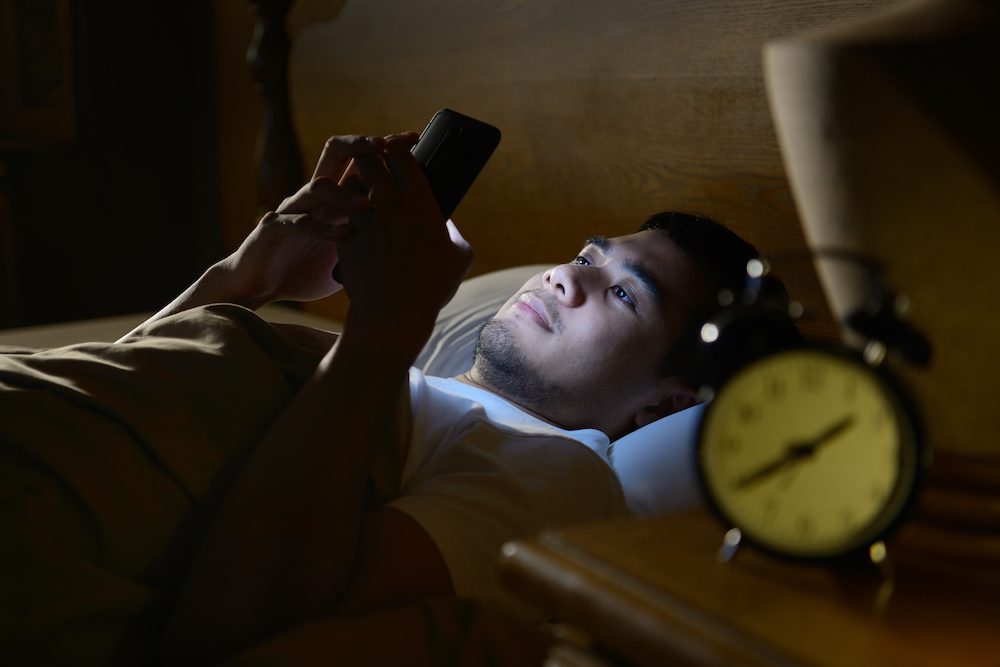Whether it’s to finish an assignment for work, cram for an exam, or make it to an early morning flight, staying up all night might seem like a way to get more done. But losing a full night of rest can leave you feeling sleepy, moody, and less productive, calling into question whether an all-nighter is really worth the drawbacks.
Find out how pulling an all-nighter affects your mind and body, if staying up all night is really worth it, and tips for how to pull an all-nighter when it’s unavoidable.
Is Pulling an All-Nighter Bad for You?
Pulling an all-nighter can impact the way you think, feel, and behave. Sleep loss can also affect your physical health, especially if you stay up all night on a regular basis or have a pre-existing medical condition.
Plus, while staying up all night might sound like a way to complete more tasks, sleep deprivation slows your thinking and reduces your ability to focus. Understanding how sleep deprivation affects the mind and body can help you weigh the pros and cons of pulling an all-nighter.
Effects on Cognitive Function
Short-term sleep loss impacts your brain in a host of ways. For example, when you’re sleep-deprived, you may struggle to remain alert and pay attention. As your thinking slows, you may start to take more time to process and respond to what’s happening in your environment.
Evidence also suggests that sleep plays an important part in problem solving and creative thinking. Sleep deprivation harms your ability to multitask, think flexibly, and understand complex concepts.
Effects on Sleepiness and Accidents
The body’s need for sleep is so strong that, after missing out on too much sleep, you may have serious trouble staying awake.
In fact, the need for sleep can cause you to drift off for brief, seconds-long naps called microsleeps. Sleepiness and microsleeps increase the risk of making errors at work and being involved in an accident, both in the workplace and on the road.
Drowsy driving is a dangerous risk of sleep loss. Feeling tired while driving leaves you less able to stay focused on the road and increases the time it takes for you to brake or make a quick decision.
Unfortunately, sleepiness and microsleeps while driving lead to serious car accidents. Thousands of people are harmed each year in accidents related to drowsy driving, and many of these accidents are fatal.
Effects on Mood and Mental Health
Pulling an all-nighter can affect your mood as well, causing you to feel more sad or anxious. Sleep deprivation is also linked to symptoms such as:
- Difficulty dealing with changes
- Trouble handling your emotions
- Lack of energy
- Low libido
- Irritability
- Mood swings
Fortunately, these symptoms tend to go away after a good night’s sleep.
Physical Effects
Your body needs adequate rest to recover from the day’s activity, engage your immune system, and maintain optimal health. Without enough sleep, your body may have a harder time healing and fighting off diseases. In fact, staying up all night may put you at an increased risk of catching a cold or the flu.
If you already have health conditions, staying up all night may make your symptoms worse. For example, sleep loss can increase your sensitivity to pain and aggravate medical conditions like asthma and COPD.
While a single all-nighter may not affect your health in the long term, chronic sleep loss increases the risk of a number of health issues, such as:
- Diabetes
- Cardiovascular disease
- Obesity
- Depression
Does Pulling an All-Nighter Affect Your Sleep?
Staying up all night may cause you to sleep longer and more deeply at the next opportunity. This happens because of your sleep drive, which is your body’s way of keeping tabs on its need for sleep. The longer you stay awake, the more your sleep drive builds. Once you finally fall asleep, your sleep drive decreases until you wake up again.
Regularly staying up all night can further disrupt your sleep patterns by interfering with your circadian rhythms. These internal, 24-hour patterns influence a variety of functions in the body, such as the timing of hormone releases and the regulation of body temperature. Circadian rhythms use cues like temperature and light to stay in sync with your environment.
One circadian rhythm, the sleep-wake cycle, controls when you feel tired or wakeful. When you stay up all night, your sleep-wake cycle can shift out of alignment with the natural pattern of day and night, making it hard to get quality rest until your body has readjusted and your circadian rhythms are restored.
How to Stay Up All Night
While it may be possible to stay up all night, missing sleep has consequences. Because losing sleep can lead to various problems the next day, it’s usually best to get the sleep that your body needs. Sometimes, however, pulling an all-nighter is unavoidable. If you must stay up all night, you can take some steps to make it more bearable.
- Get Plenty of Rest Beforehand: Prioritize getting a good night’s sleep the night before you plan to stay up all night. Getting more rest before you pull an all-nighter might protect you from some negative effects of sleep deprivation.
- Have Some Caffeine: Caffeine is a well-known stimulant and can help you stay awake. Studies show that caffeine may be even more effective when you consume it right before taking a 20-minute nap.
- Get up and Move Around: Exercise can boost your mood and energy level. If you find yourself drifting off, get up and walk around the room or do some quick exercises.
- Avoid Alcohol: It might be tempting to have a drink if you have a long night ahead of you. However, alcohol can amplify the effects of sleep deprivation, making you feel even more tired and unable to focus on the task at hand.
- Use Bright Lights: Exposure to bright lights, especially in the first half of the night, can help to keep you alert, so make sure your work space is brightly lit.
How Can You Recover From an All-Nighter?
An all-nighter leaves you with sleep debt, which is a loss of sleep that can only be paid off by getting adequate rest. After you pull an all-nighter, give yourself plenty of extra time to sleep by going to bed earlier in the evening.
There are other ways to feel better after staying up all night.
- Improve Your Sleep Hygiene: Maintaining good sleep hygiene might help you get better rest overall, whether you’ve stayed up the night before or want to sleep well consistently. Sticking to a regular sleep schedule and finding a calming bedtime routine can help you fall asleep more easily. So can regular exercise during the day.
- Take in the Morning Light: Exposing yourself to bright light first thing in the morning can help to boost your alertness and realign your sleep-wake cycle.
- Nap Strategically: Taking a 20-minute nap can help you feel less fatigued and think more clearly when you feel tired. But avoid napping longer than 20 minutes, as a longer nap could leave you feeling groggy when you wake up.
- Avoid Caffeine in the Evening: Caffeine might help when you’re staying up all night, but a cup of coffee can make it hard to readjust when getting back to your regular sleep schedule. It takes six to eight hours for the effects of caffeine to wear off, so try to avoid caffeine too close to your bedtime.
How to Avoid Staying Up All Night
The best way to avoid staying up all night is to plan ahead. You may not need to stay up all night finishing a project or studying if you focus on being productive during the day and reserve the night for restful sleep.
- Plan Ahead: Use a planner or calendar that has enough space to note events and project due dates. Check it daily to be sure you’re aware of the date and don’t run into any unpleasant surprises.
- Work in Chunks: Work towards goals and assignments every day, so you don’t need to finish tasks at the last minute. If you’re having trouble staying focused on a specific task, try getting up for a short break before getting back to work.
- Say “no” to Sacrificing Sleep: While working at the last minute is sometimes a necessity, setting boundaries on how and when you work can be an important way to manage stress and get the sleep you need. Prioritizing your sleep is a vital aspect of self-care.
References
Ask the Sleep Doctor
Have questions about sleep? Submit them here! We use your questions to help us decide topics for articles, videos, and newsletters. We try to answer as many questions as possible. You can also send us an email. Please note, we cannot provide specific medical advice, and always recommend you contact your doctor for any medical matters.




